
Here's one sign the global elite is starting to get worried that capitalism isn't working for the Western middle class. At the TED Global gathering in Scotland's elegant capital city this week, much of the spotlight was on what's going wrong with the 21st-century economy.
That matters because the TED conferences are one of the obligatory stops on the itinerary of any self-regarding plutocrat, and in the past that constituency has often preferred its vision of the economic future served sunny-side up. (TED stands for technology, entertainment and design, and is a not-for-profit global conference organisation.)
...
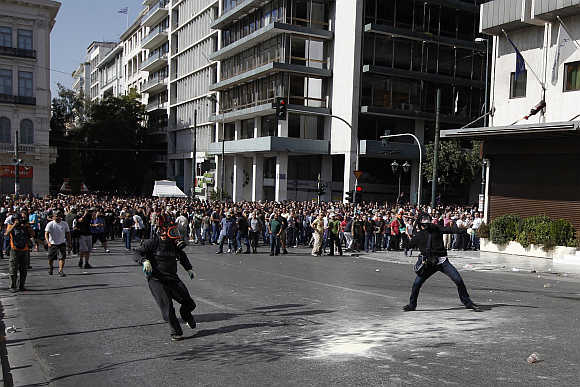
The gloom started with former prime minister George Papandreou of Greece. In a remarkably candid and introspective talk, Papandreou offered a mea culpa for his own mistakes and those of the European political elite.
He admitted that hardship had been imposed on people who were "in the main, not to blame for the crisis" and accused the European establishment of uncritically, and at great cost, clinging to "the orthodoxy of austerity."
Small Greece, he argued, had been made the scapegoat for a larger political and economic failure. As Papandreou mockingly put it, Europe chose to point the finger at "those profligate, idle, ouzo-swilling, Zorba-dancing Greeks."
...
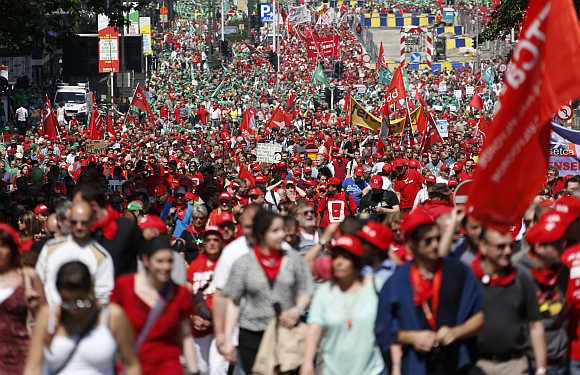
Instead of addressing the harder, underlying issues, the impulse was to say: "They are the problem! Punish them!"
Papandreou is a son of privilege - both his father and grandfather were prime ministers of Greece - but, in a sign of the times, he inveighed against "plutocrats hiding their assets in tax havens" and "powerful lobbies protecting the powerful few."
His comments made an impact partly because he was so open in declaring his own shortcomings. Nor did he shy away from how angry a lot of people are about them.
"It's no wonder many political leaders, and I don't exclude myself, have lost the trust of our people," Papandreou said, in the most affecting passage of his talk.
...
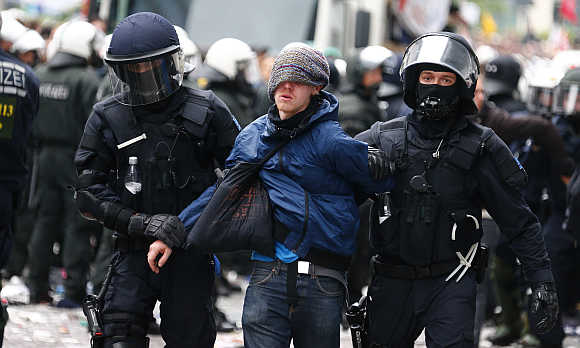
"When riot police have to protect parliaments, a scene that is increasingly common around the world, there is something wrong with our democracies."
For the chosen few inside the TED hall, Papandreou also inadvertently served as a physical reminder of how bitterly felt the rage is among some of the masses on the outside.
Gray, rainy Scotland is a long way from Greece, but even here, Papandreou was greeted by protesters incensed at the pain his austerity measures imposed on his country. The city's gracious, granite streets were plastered with posters calling on Papandreou to go home and attack austerity across Europe.
...

That was just a start. A session devoted to "Money" offered more critiques. Didier Sornette, a professor of risk at the Swiss Federal Institute of Technology, took the world's financiers to task for being so bad at anticipating asset bubbles.
Booms and busts, he asserted, are predictable and often controllable, and he offered his own technique for spotting them. Next up for a flogging were the ratings agencies: Annette Heuser, executive director of the Washington branch of the Bertelsmann Foundation, based in Germany, denounced them as opaque, conflicted and dangerously powerful.
"The sector needs a complete overhaul, not just a trimming around the edges," Heuser said. "We've left the major financial players alone for too long."
...
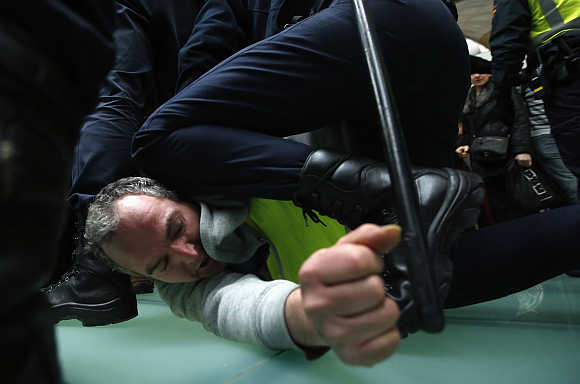
The credit ratings of countries, she argued, need to be redefined from a profit-making business to a public good, and she outlined her effort to create an international not-for-profit organization that could challenge the oligopoly of the ratings agencies.
Most passionate of all was Mariana Mazzucato, a professor of economics at the University of Sussex, in England. Her gripe was with the familiar characterization of the private sector as the sole source of innovation and creative thinking and of the state sector as a Kafkaesque world of inefficiency, bureaucracy and frustration.
...
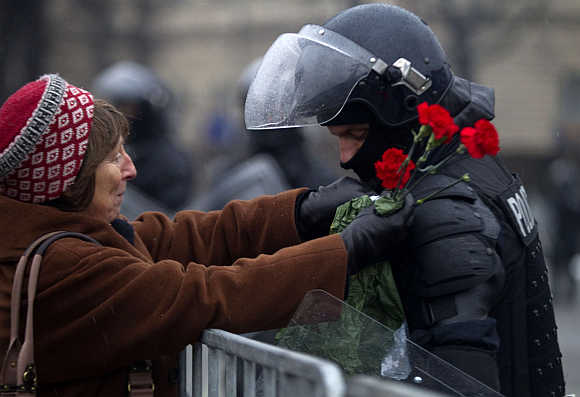
The reality, Mazzucato said, is that the state is responsible for some of the most essential, and initially risky, innovations in our world today, ranging from the Internet to "the cool, revolutionary things in your iPhone."
The state, she argued, is a "market maker," whose ability to take bold, risky bets is critical for economies to grow at the global cutting edge.
Disclosure alert: I was a speaker, too. I talked about my chief obsession, soaring global income inequality, particularly at the very top of the pyramid, and the uncomfortable fact that the same forces that are enriching the global super-elite are hollowing out the middle class in the Western developed economies. Making capitalism work for everyone, and not just the plutocrats, I argued, is our most pressing political and economic problem.
...
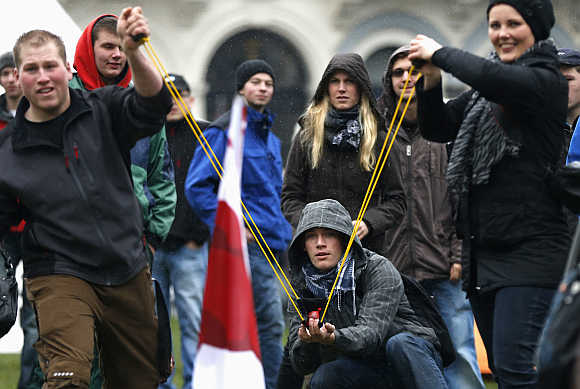
Taken together, and given the gilded venue, all of these comments amount to a significant shift in tone. Charlie Robertson, the global chief economist for Renaissance Capital, the Russian-based investment bank, was moved to post on Twitter, in reaction to the TED lineup, that the "intellectual ascendancy of neo-liberalism since 70s may be in retreat."
That is probably going too far. But we do seem to be at a turning point, or the beginning of one. Judging by this week in Edinburgh, even the winners in the global economy are beginning to realise that there are a lot of losers, too, and that that's a problem. You might see that as too little too late; you might also see it as, at long last, a start.